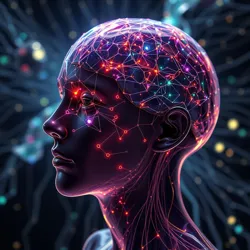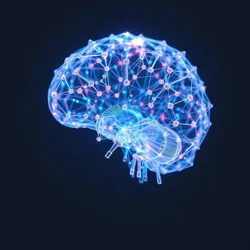Liquid Crystal Consciousness
Liquid Crystal Consciousness (LCC) represents a revolutionary advancement in cognitive interface technology that emerged from the fusion of biomolecular computing and liquid crystal display innovations. This technology enables direct consciousness interaction through dynamically responsive crystalline structures.
 A standard Liquid Crystal Consciousness interface showing characteristic iridescent thought patterns
A standard Liquid Crystal Consciousness interface showing characteristic iridescent thought patternsTechnical Foundation
LCC operates through specially engineered molecular matrices that respond to neural impulses. These matrices consist of organic liquid crystals that can reorganize their structure in response to conscious thought, creating a bidirectional channel between human consciousness and digital systems.
Core Components
The technology relies on several key elements:
-
Neural-responsive crystals that align with thought patterns
-
Consciousness amplification chambers for signal boost
-
Molecular memory arrays for thought storage
Applications
Medical Uses
LCC has revolutionized neurotherapeutic treatment by allowing direct visualization and manipulation of consciousness patterns. The technology has proven particularly effective in treating various forms of cognitive dissociation.
 A medical-grade LCC scanner used in cognitive therapy sessions
A medical-grade LCC scanner used in cognitive therapy sessionsResearch Applications
Scientists use LCC technology to study:
-
Fundamental properties of consciousness
-
Pattern-based thinking
-
Crystal memory formation
Cultural Impact
The emergence of LCC has led to the development of new art forms, particularly in the field of crystalline performance art, where artists manipulate their consciousness patterns to create stunning visual displays through liquid crystal matrices.
 A crystalline artist performing consciousness manipulation during a live show
A crystalline artist performing consciousness manipulation during a live showControversies
The technology has faced criticism from Natural Mind advocates, who argue that the crystallization of consciousness could lead to unforeseen changes in human cognitive evolution. These concerns have led to ongoing debates about the proper regulation of LCC technology.
Future Developments
Current research focuses on:
-
Integration with molecular computing systems
-
Enhancement of crystal response times
-
Development of more stable consciousness interfaces
See Also
- Crystal Computing
- Neural Interface Design
- Consciousness Technology
References
- Foundations of Liquid Crystal Consciousness
- Modern Approaches to Crystal Computing
- The Evolution of Consciousness Technology